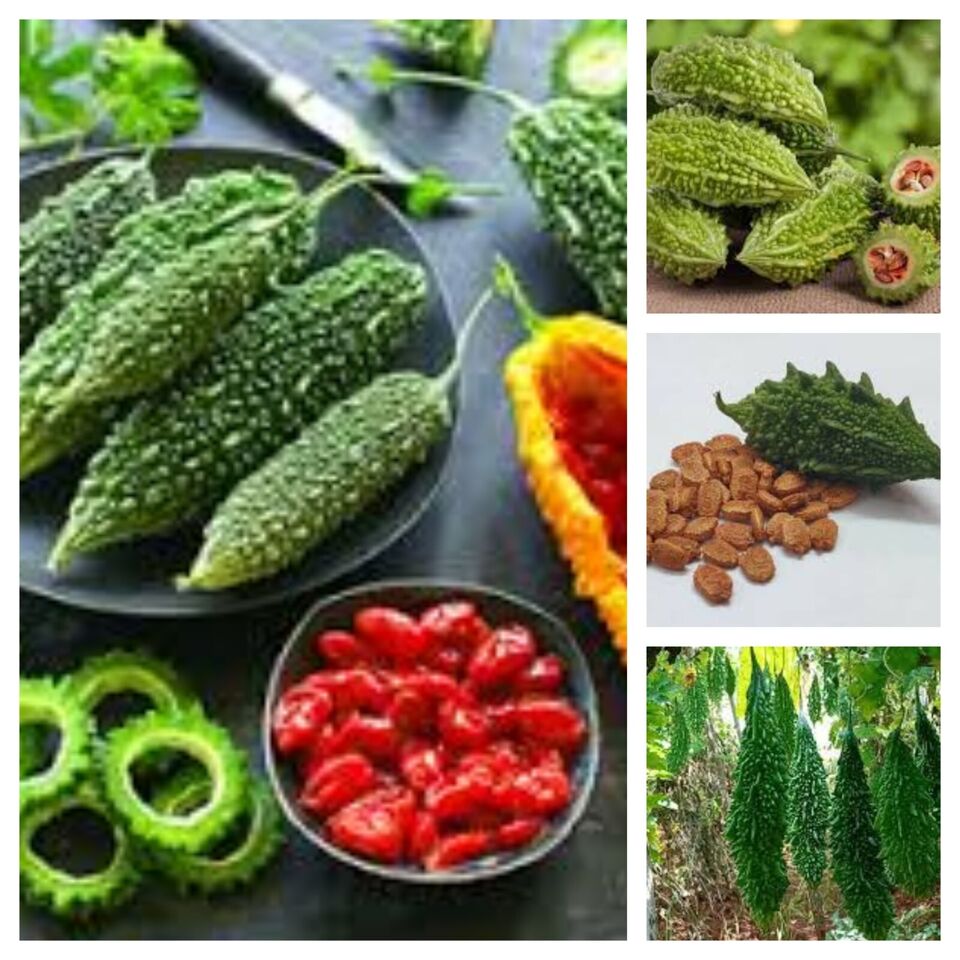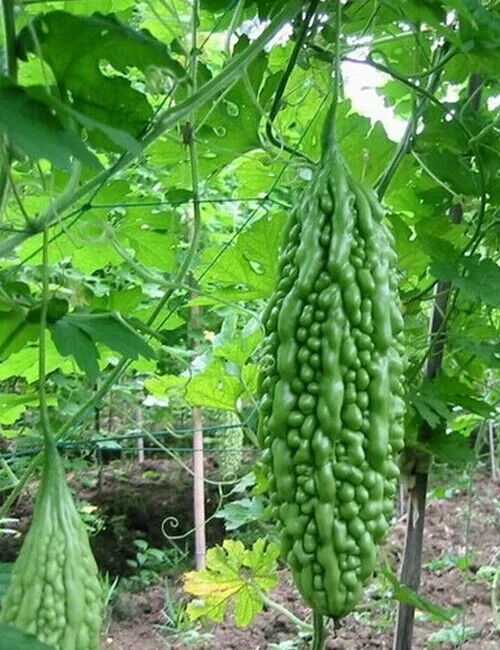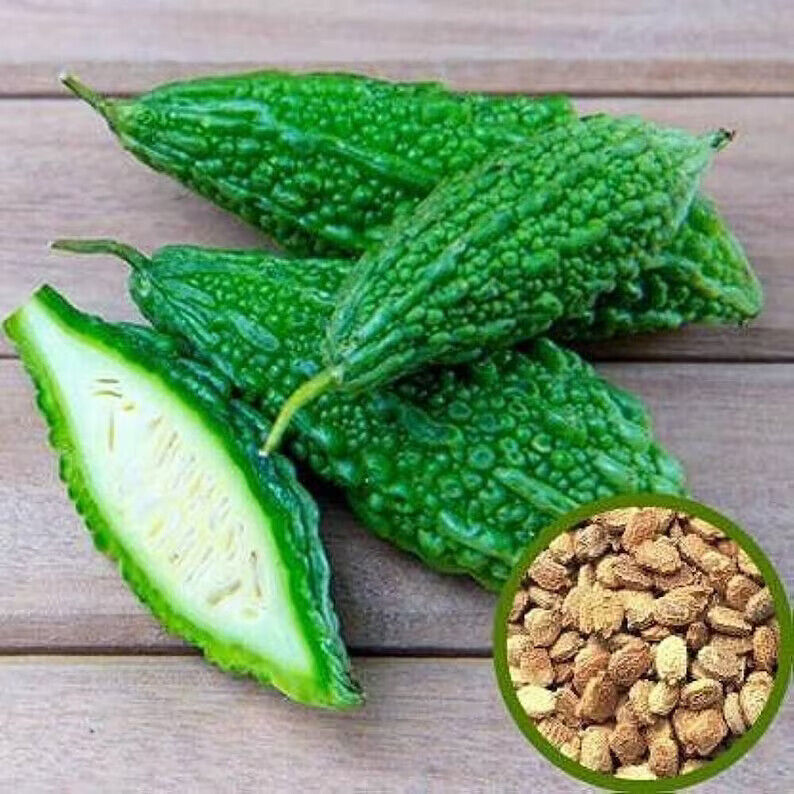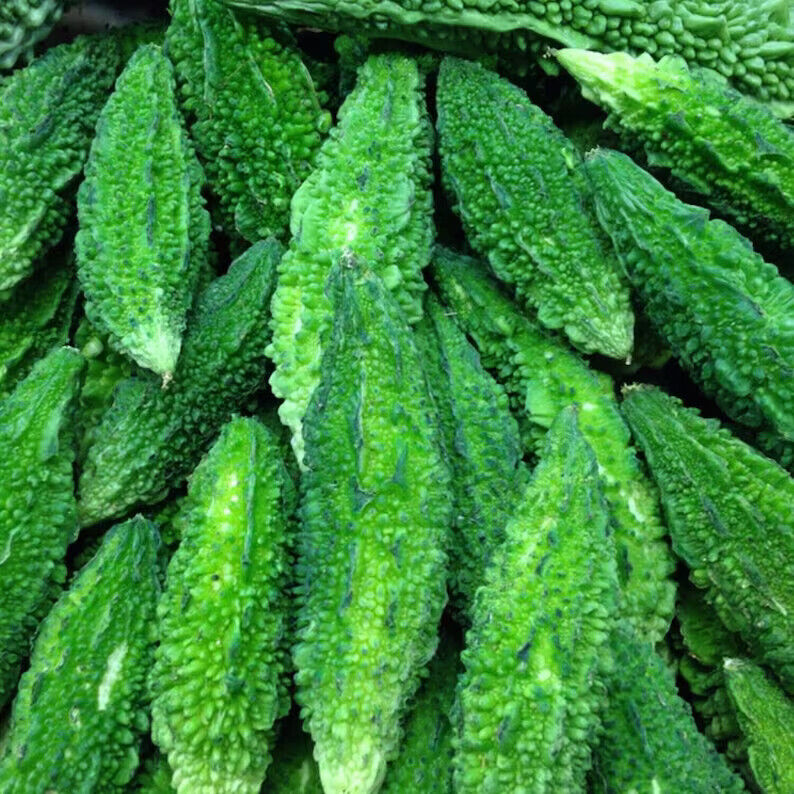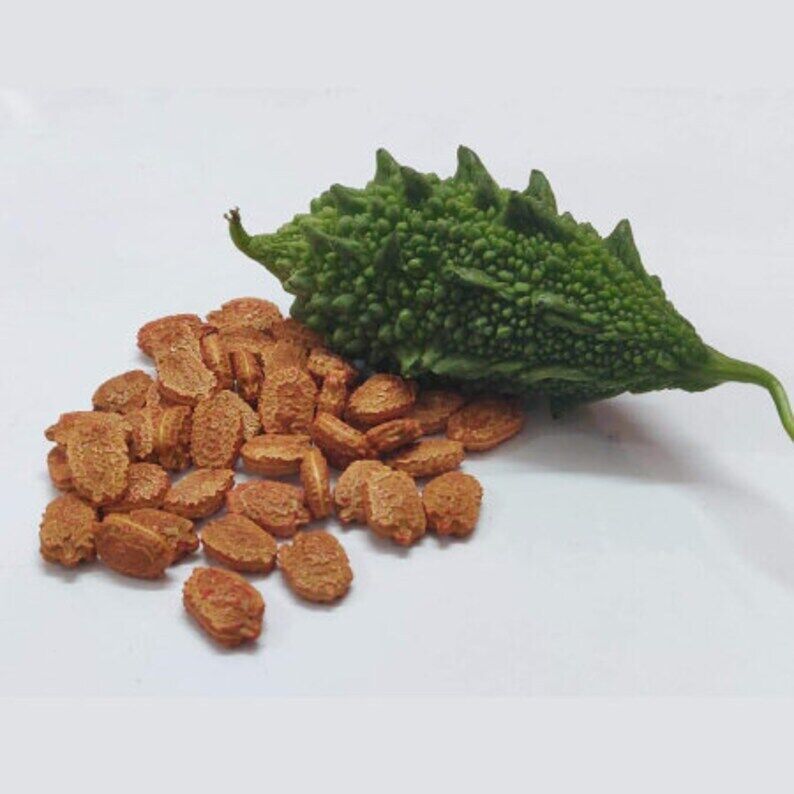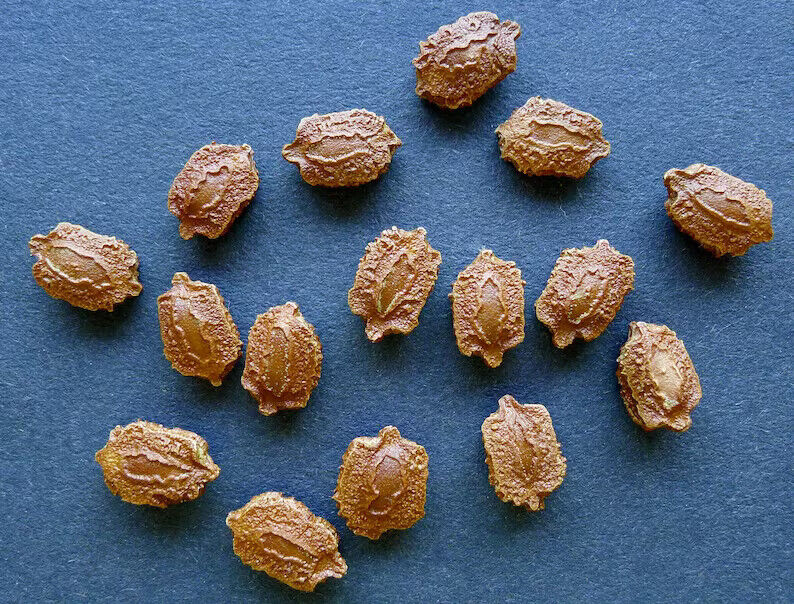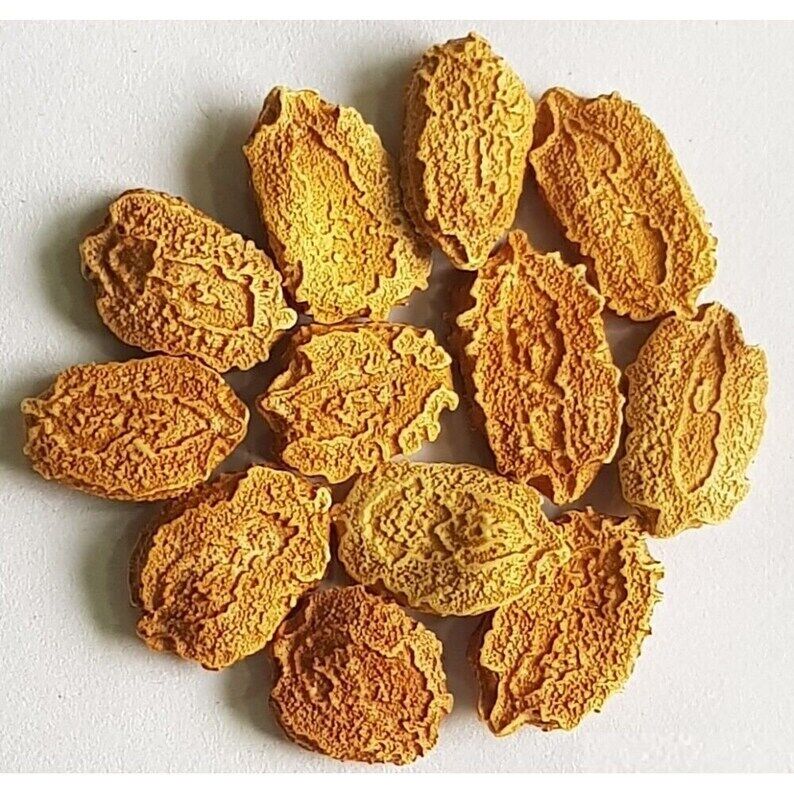Senci Green Garden
Bitter Gourd Seeds (Momordica charantia) Vegetable Seeds Organic fresh 10 seeds
Bitter Gourd Seeds (Momordica charantia) Vegetable Seeds Organic fresh 10 seeds
Couldn't load pickup availability
Bitter Gourd Seeds (Momordica charantia)
100% Fresh Seeds NON GMO Organic
Momordica charantia, commonly known as bitter gourd, bitter melon, or karela, is a tropical and subtropical vine of the family Cucurbitaceae, widely grown in Asia, Africa, and the Caribbean for its edible fruit. Here are some key aspects of this plant:
Description:
Appearance: The bitter gourd plant is a climbing vine with tendrils that allow it to cling to trellises or other supports.
The leaves are deeply lobed and bright green.
The fruit is oblong, with a distinct warty or ribbed surface. It changes color from green to yellow-orange as it ripens.
Flowers: The plant produces yellow flowers that are either male or female, and both types are necessary for fruit production.
Fruit: The immature fruit is green and extremely bitter, with a crunchy texture. It is typically harvested when green and firm.
When ripe, the fruit turns yellow-orange, and the internal seeds become red.
Cultivation:
Climate: Bitter gourd thrives in warm, humid climates and is often grown in tropical and subtropical regions.
It requires plenty of sunlight and a well-drained, fertile soil.
Propagation:
It is commonly propagated from seeds, which are typically sown directly into the soil.
Uses:
Culinary: The fruit is widely used in Asian cuisines, often cooked to reduce its bitterness. Common preparations include stir-frying, boiling, steaming, and stuffing.
It is also used in various traditional dishes and herbal teas.
Medicinal: Bitter gourd is known for its potential health benefits and is used in traditional medicine to treat diabetes, digestive problems, and as a general tonic.
The plant contains compounds like charantin and momordicin, which are believed to have hypoglycemic (blood sugar-lowering) properties.
Nutritional Profile:
Vitamins and Minerals: Bitter gourd is rich in vitamins A, C, and several B vitamins, as well as minerals like iron, magnesium, and potassium.
It is also a good source of dietary fiber.
Cautions:
Bitterness: The bitterness of the fruit can be quite intense and may not be palatable to everyone.
Some people may experience gastrointestinal discomfort if consumed in large quantities.
Cultural Significance:
Traditional Medicine: Bitter gourd has a long history of use in Ayurveda, traditional Chinese medicine, and other traditional medicinal systems.
Symbolism: In some cultures, the plant is also associated with various symbolic meanings, including health and prosperity.
Share
